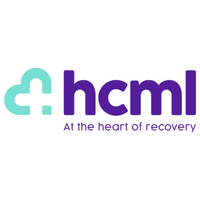Could a health trust be right for your organisation?
Setting up a health trust is a strategic move for organisations looking to enhance employee health and wellbeing for the workforce, whether this be whole of workforce or a specific category.
A health trust is a self-funded healthcare plan that allows organisations to tailor benefits and rules to the specific needs of their employees and the needs of their business.
Unlike traditional private medical insurance (PMI) products, health trusts offer the flexibility to design the benefits to include the provision of support for those benefits that are often not covered e.g. weight management.
In addition, the ability to manage the benefits to meet these needs provides the opportunity to personalize the approach and provide a very cost-effective offering.
Setting up a health trust for large organisations
Assess organisational needs: Begin by evaluating the healthcare needs of your employees including identifying what data you currently have and what the data is telling you.
Sickness absence data can help you identify the conditions that are increasing the number of hours lost due to problems accessing advice and treatment via the NHS.
Other data from other benefits such as your EAP or wellbeing programme will further enrich the data.
Surveys and focus groups can also help you gather insights on the types of benefits that your employees would feel would be most valuable.
Design the trust structure: Work with healthcare experts to design a health trust structure that aligns with your organisation’s goals and health and wellbeing profile.
For example, you may have employees who are carrying out mostly physical tasks such as manual handling or have psychological demands involving dealing with customer complaints.
Whatever the needs of your employees you can link the provision of the benefits to the nature of the work they do and their healthcare needs.
Understanding the broader risks that we now face such as obesity and inactivity means that you can also personalize the wellbeing benefits within the health trust to address both clinical and lifestyle factors.
Combining clinical and wellbeing provision means that you can reduce sickness absence and reduce the costs of the plan while also improving the quality of the lives of your employees and their dependents.
Trust deed: A trust deed is a foundational legal document that outlines the terms and objectives under which the trust operates to comply with HMRC requirements.
For company paid benefits we would recommend a non-discretionary trust to ensure that employees, and their families are all treated fairly.
A few select lawyers have framework agreements that can be adapted to the needs of each employer.
The trust deed requires very little amendment over time but it is important that the benefits and rules of the plan are reviewed each year, normally with the advice of your third party claims administrator.
Legal and regulatory compliance: A health trust is normally governed by a board of trustees.
The trustees would then normally appoint an independent administrator to be responsible for the day-to-day administration of the benefits, rules, supplier contracts and the claims fund.
The administrator is also responsible for the provision of detailed management information to ensure that the trust is being managed in accordance with the trust deed and that the financial management of the trust funds is fully compliant.
Trust board: A larger employer may wish to operate a trust company and its own trust board.
This would normally consist of a chairman, a finance director, a company secretary and then representatives from the business.
We would recommend that you gain independent advice from a suitable lawyer, possibly the lawyer that has provided the trust deed for you. This lawyer can ensure that the trustees who sit on the trust board are fully cognisant with their role and to ensure that they understand that they cannot pay claims on a discretionary basis as this can invalidate the legality of the trust deed.
Alternatively, your third party claims administrator may also offer the provision of an independent trust board and they may suggest that if you wish to use an independent trust board, you appoint representatives to that board.
Setting up a health trust for SMEs
Health trusts for smaller organisations operate in a similar way to large corporate heath trusts, but the rules and benefits apply across multiple organisations.
In this case, the third party claims administrator provides the trust deed, the trust board structure and ensures you have a voice in the development of the trust and its management.
Why set up a health trust?
- Customisation: You have control over the benefits you provide and which health conditions are covered. You can add a range of wellbeing benefits that address underlying personal risks in the long-term and offer a preventative approach to healthcare rather than relying heavily on clinical interventions that often see repeat claims.
- Cost savings: Health trusts can lead to significant cost savings for employers.
- Return to work: Trusts can be set up so that benefits are available when supporting an employee to remain in work or assist in a return to work.
Supplied by REBA Associate Member, HCML
HCML is a health and wellbeing provider, offering integrated and personalised healthcare solutions.








